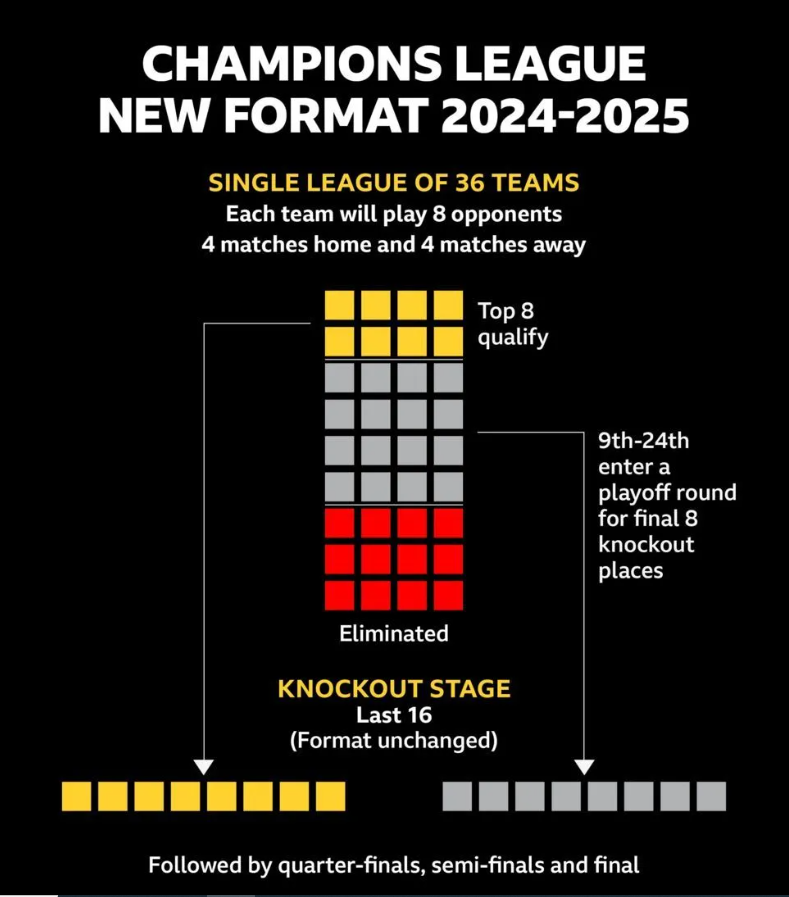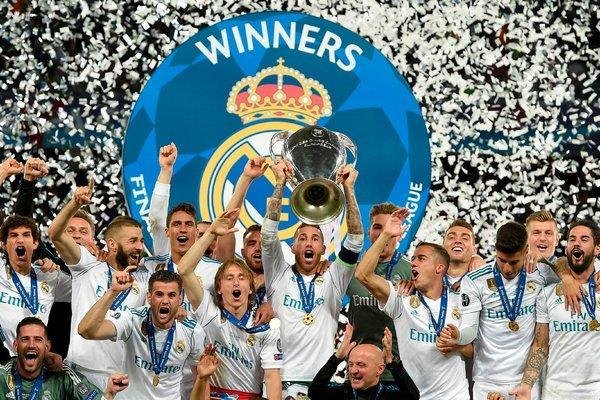The Champion League is a prestigious soccer tournament. Clubs from Europe compete for the title.
Soccer fans worldwide know the excitement of the Champion League. This tournament brings together the best clubs from different countries. It’s a chance to see top players and thrilling matches. Winning the Champion League is a dream for every club and player.
It’s not just about the trophy; it’s about pride and glory. The competition is fierce, and the atmosphere is electric. Teams battle it out in group stages and knockouts. Each match can change the course of the tournament. The Champion League is more than a competition. It’s a celebration of soccer at its highest level.
Introduction To The Champions League
The Champions League represents the pinnacle of club football in Europe. It brings together the best teams from various national leagues. This competition showcases top-tier talent and electrifying matches. Fans around the world eagerly await each season.
Brief History
The Champions League began in 1955, known originally as the European Cup. Its creation aimed to determine the best football club in Europe. Over the years, it evolved and expanded. The name changed to the Champions League in 1992. This change marked a new era, increasing its global appeal.
Teams from all over Europe compete for the prestigious trophy. The format includes a group stage followed by knockout rounds. The final match determines the ultimate champion. The tournament’s history is filled with memorable moments and legendary players.
Significance In Football
The Champions League holds immense importance in football. Winning this competition is a dream for clubs and players alike. It symbolizes excellence and success. Clubs gain international recognition and prestige.
Top clubs invest heavily to build competitive teams. Fans show unwavering support throughout the season. The Champions League showcases thrilling matches and spectacular goals. It provides a platform for emerging talents to shine.
Ultimately, it unites football enthusiasts worldwide. The Champions League is more than a competition. It is a celebration of the beautiful game. It highlights the passion, skill, and dedication of footballers. It continues to inspire future generations.
Format And Structure
The UEFA Champions League is the pinnacle of European club football. Understanding its format and structure helps fans appreciate its complexity and excitement. This section breaks down the tournament into its two main stages: the Group Stage and the Knockout Stage.
Group Stage
The Group Stage is where the journey begins for 32 teams. They are divided into eight groups of four teams each. Every team plays six matches, facing each group opponent twice. The matches are held home and away. Teams earn points based on match results.
Three points are awarded for a win, one for a draw, and none for a loss. The top two teams from each group advance to the Knockout Stage. The third-placed teams move to the Europa League. The Group Stage ensures every team plays multiple matches, adding to the tournament’s excitement.
Knockout Stage
The Knockout Stage features the top 16 teams from the Group Stage. This phase follows a two-legged format, with each matchup having a home and away game. The aggregate score decides the winner. If the scores are tied, the away goals rule applies. Extra time and penalties can also decide the outcome.
Winning teams advance to the quarter-finals, semi-finals, and eventually the final. The final is a single match held at a pre-selected venue. The Knockout Stage is thrilling, as each match could be a team’s last chance to stay in the competition.
Qualification Process
The Champions League qualification process determines the best football clubs in Europe. Teams compete in various stages to secure their place in the tournament. Only the top teams advance to the group stage.
The UEFA Champions League is one of the most prestigious football tournaments in the world, drawing top clubs from across Europe. But how do teams actually qualify for this esteemed competition? The qualification process is meticulous and ensures that only the best of the best make it through. This section will dive into the intricacies of this process, focusing on the roles of domestic leagues and playoffs.
Domestic Leagues
Qualification for the UEFA Champions League begins at the domestic level. Each country’s football association determines how many spots their league will receive. Generally, the stronger the league, the more spots it gets. For example, the English Premier League typically sends its top four teams, while smaller leagues might only send their champion.
The beauty of this system is that it rewards consistent performance over an entire season. Imagine your favorite team battling it out, week after week, knowing that every match counts towards a potential spot in the Champions League. That kind of pressure and excitement is unmatched.
For instance, Leicester City’s unexpected Premier League win in the 2015-2016 season earned them a spot in the Champions League, a first in their history. This unforgettable moment showed that any team, regardless of past performance, could make it to the grand stage with determination and skill.
Playoffs
However, not all teams qualify directly from their domestic leagues. Some have to go through a playoff round. This is where the competition gets fierce. Playoff rounds are knockout matches that determine the final few teams to enter the group stage of the Champions League.
These matches are high-stakes and often feature thrilling football. If you’ve ever watched a playoff game, you know the intensity is palpable. Teams give their all, knowing that a loss means missing out on the Champions League.
A memorable example is Liverpool’s qualification for the 2017-2018 season. They had to overcome Hoffenheim in the playoff round. The tension was sky-high, but Liverpool triumphed and went on to reach the final that season. This shows that even if a team doesn’t secure a direct spot, the dream is still alive through the playoffs.
Think about how exciting it is for the fans too. Each playoff game is a do-or-die situation, making it some of the most gripping football you’ll ever watch.
Have you ever wondered what it feels like for the players during these crucial matches? The pressure, the anticipation, knowing that their season’s work comes down to a few critical moments. It’s a rollercoaster of emotions that adds to the allure of the Champions League.
So, the next time you watch a Champions League match, remember the arduous journey teams undertake just to get there. Whether through their domestic league or the nail-biting playoffs, each team has proven they deserve to be part of Europe’s elite competition.
Credit: en.wikipedia.org
Key Teams And Players
Key teams like Real Madrid and Barcelona often dominate the Champion League. Star players like Lionel Messi and Cristiano Ronaldo elevate the excitement.
When it comes to the Champions League, the key teams and players are what make the tournament extraordinary. They bring the excitement, the drama, and the sheer brilliance that football fans around the world anticipate each season. From historic clubs that have shaped the competition to legendary players who have left an indelible mark, let’s dive into the heart of what makes the Champions League the pinnacle of club football.
Historic Clubs
Certain clubs have become synonymous with Champions League success. Real Madrid, for instance, has an impressive record, having won the tournament a record 14 times. Their ability to consistently perform at the highest level is awe-inspiring.
FC Barcelona is another titan, known for its attacking prowess and the mesmerizing tiki-taka style of play. Watching them dismantle defenses with precision passes is a sight to behold.
AC Milan and Liverpool also deserve mention. Both clubs have rich histories and have provided some of the most unforgettable moments in the Champions League. AC Milan’s dominance in the late 80s and early 90s and Liverpool’s miraculous comeback in the 2005 final are etched in football folklore.
Legendary Players
The Champions League has been a stage for some of the greatest footballers in history. Cristiano Ronaldo, often referred to as “Mr. Champions League,” holds the record for the most goals scored in the competition. His athleticism and knack for scoring in crucial moments have made him a legend.
Lionel Messi is another name that comes to mind. His vision, dribbling skills, and goal-scoring ability have earned him numerous accolades. Watching him weave through defenders is like watching a master artist at work.
Paolo Maldini of AC Milan is a defender who set the standard for excellence. His career spanned over two decades, and his defensive skills were unmatched.
Then there are the likes of Zinedine Zidane, whose volley in the 2002 final is often regarded as one of the best goals ever scored in the competition, and Steven Gerrard, whose leadership and tenacity helped Liverpool achieve one of the most remarkable comebacks in football history.
The Champions League is not just about the matches; it’s about the stories, the rivalries, and the moments of magic that stay with you long after the final whistle. Which club or player has left the biggest impression on you?
Iconic Matches
Iconic matches in the Champions League captivate fans worldwide. These games are unforgettable. They showcase skill, determination, and drama. Fans talk about them for years. Let’s dive into some of these iconic moments.
Memorable Finals
The finals of the Champions League often provide drama. One such match is the 2005 final between Liverpool and AC Milan. Liverpool was down 3-0 at halftime. They made a stunning comeback to tie 3-3. They won in a thrilling penalty shootout. This match is known as the “Miracle of Istanbul”.
Another memorable final is the 1999 clash between Manchester United and Bayern Munich. Bayern led 1-0 until the final moments. Manchester United scored twice in added time. They snatched victory from the jaws of defeat. Fans still remember these last-minute goals.
Greatest Comebacks
Comebacks in the Champions League are legendary. Barcelona’s 2017 match against Paris Saint-Germain is a prime example. PSG won the first leg 4-0. Barcelona needed to score at least five goals in the second leg. They achieved the impossible, winning 6-1. This is the greatest comeback in Champions League history.
Another remarkable comeback occurred in 2018. AS Roma faced Barcelona. Barcelona won the first leg 4-1. Roma needed to score three goals without conceding. They managed to win 3-0. This victory sent them to the semifinals. Fans still talk about this incredible match.
Economic Impact
The Champions League significantly boosts local economies through tourism and increased business activities. Hosting matches attracts thousands of visitors, enhancing revenue for hotels, restaurants, and other local services.
The Champions League is more than just a prestigious football competition; it has far-reaching economic impacts that ripple through various sectors. From generating substantial revenue to attracting lucrative sponsorship deals, the financial implications of the Champions League are monumental. Understanding these impacts can give you a deeper appreciation of how football shapes global economies.
Revenue Streams
The Champions League creates multiple revenue streams that benefit clubs, cities, and even countries. Ticket sales are a primary source of income. Imagine the excitement of 80,000 fans filling a stadium, each paying for a ticket. That’s substantial revenue.
Broadcasting rights are another significant stream. Networks pay billions to air these matches worldwide. This means even if you’re watching from your living room, you’re contributing to the economic cycle.
Merchandising is also huge. Fans buying jerseys, scarves, and other team memorabilia provide a steady income. Each purchase supports the financial ecosystem of the clubs.
Sponsorship Deals
Sponsorship deals are a game-changer. They inject huge sums of money into the sport. Brands like Nike, Adidas, and Pepsi vie for the chance to associate with top clubs.
These deals are not just about money; they’re about global exposure. Brands get their logo on jerseys, stadiums, and even on TV. This visibility is priceless.
Think about how you feel when you see your favorite player in a commercial. It creates a connection. That’s what brands are paying for—a direct line to millions of passionate fans.
Have you ever wondered how your favorite club can afford top-tier players? It’s often due to these lucrative sponsorships. They provide the financial muscle needed to attract and retain talent.
By understanding these economic impacts, you can see how the Champions League is more than just a game. It’s a global economic powerhouse. How does your view of football change knowing its financial significance?
Cultural Influence
The Champions League has a significant cultural influence. It goes beyond just a football tournament. Its impact touches many aspects of society. From local communities to global platforms, the Champions League shapes cultural identities. Let’s explore this influence through its global fanbase and media coverage.
Global Fanbase
The Champions League boasts a vast global fanbase. People from different backgrounds unite. They share a common passion for football. This unity transcends cultural boundaries. Fans celebrate together. They also face disappointments together. The shared experiences create a strong bond. This connection promotes cultural exchange. It enriches the lives of many across the world.
Media Coverage
Media coverage of the Champions League is extensive. It reaches millions of viewers. This wide reach amplifies its cultural influence. News channels, websites, and social media platforms cover it. They bring the excitement to homes worldwide. This coverage shapes public opinion. It also influences cultural trends. People discuss matches, players, and events. It becomes a part of daily conversations. This constant exposure makes the Champions League a cultural phenomenon.

Credit: en.wikipedia.org
Future Of The Champions League
The Champions League has long been the pinnacle of European club football, drawing millions of viewers worldwide. But what does the future hold for this prestigious tournament? With changes on the horizon and challenges to overcome, the next few years promise to be transformative. Let’s dive into the details to understand better what to expect.
Upcoming Changes
The Champions League is set to undergo several significant changes designed to make the tournament even more exciting and accessible. One of the most anticipated changes is the expansion of the group stage. Starting from the 2024 season, the number of teams will increase, allowing more clubs from various leagues to compete on this grand stage. This change aims to bring diversity and fresh talent into the spotlight.
Another exciting development is the integration of advanced technology. VAR (Video Assistant Referee) has already made a significant impact, but future innovations like AI-driven analytics and real-time player tracking could revolutionize how games are played and viewed. Imagine watching a match with real-time stats and insights displayed on your screen!
Potential Challenges
While these changes are exciting, they also come with their set of challenges. One major concern is the scheduling conflicts that an expanded tournament might create. With more teams and matches, fitting everything into an already packed football calendar could be tricky. This could lead to player fatigue and increased injury risks, which clubs and managers will need to address.
Financial disparities between clubs are another significant challenge. While the top clubs have vast resources, smaller clubs may struggle to compete on equal footing. This financial gap could impact the competitive balance of the tournament. It raises the question: how can we ensure that the Champions League remains a fair competition for all?
Additionally, the integration of new technologies could face resistance. Traditionalists may argue that football should remain free from too much technological influence. Striking the right balance between innovation and tradition will be crucial to maintaining the essence of the game.
As a football fan, I’ve seen how changes can both excite and concern. When VAR was introduced, it felt like a double-edged sword. It improved decision-making but also added new layers of controversy. The future of the Champions League will likely be similar—filled with innovations that will shape the game in new ways, but also challenges that will need careful navigation.
Are you excited about the upcoming changes, or do you have concerns about the potential challenges? Share your thoughts in the comments below!

Credit: www.bbc.com
Frequently Asked Questions
What Is The Difference Between Premier League And Champions League?
The Premier League is England’s top-tier domestic football league. The Champions League is a European competition featuring top teams from various countries.
Who Qualifies For The Champions League?
Top teams from Europe’s domestic leagues qualify for the Champions League. Performance in national leagues determines qualification.
What Is The Meaning Of Premier League?
The Premier League is the top-tier professional soccer league in England, featuring 20 teams competing annually. Established in 1992, it’s renowned worldwide for its competitive matches and talented players.
When Did The Champions League Get Its Name?
The Champions League got its name in 1992. The competition was previously known as the European Cup.
Conclusion
The Champions League represents the pinnacle of club football. It brings together top teams and showcases incredible talent. Fans worldwide eagerly watch every match. The excitement and competition are unmatched. For players, it’s a dream come true. Winning the Champions League is a prestigious honor.
It elevates clubs to legendary status. The tournament’s history is rich with memorable moments. Each season adds new chapters to its legacy. Understanding its meaning enhances the experience for all football lovers.


